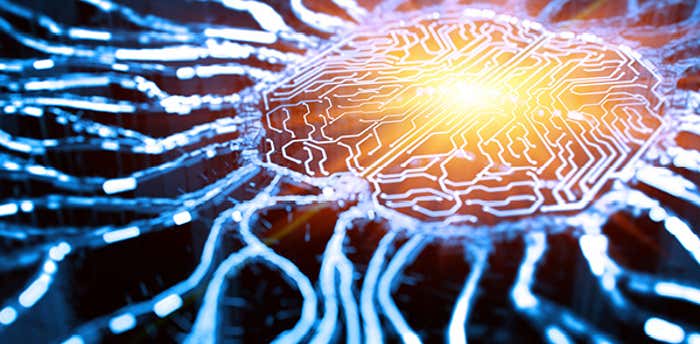ML-Based Software: What It Is And Who Needs It

After artificial intelligence, machine learning is perhaps the trendiest term in the business world today. More and more companies are now hiring ML consultants and the reason for this is pretty simple. Everyone wants to benefit from those exciting opportunities ML promises. Few however know how to do that. Well, at least, you’ll be one of those few soon.
What is Machine Learning Exactly?
First things first, machine learning (ML) is a subset of artificial intelligence (AI). So they aren’t two different things. Rather, the former is part of the latter. The specific role of ML is to enable systems to learn and improve from experience. What is important here is that they do so without being explicitly programmed. In other words, the idea is to empower computers to learn and adapt just like humans do.
For businesses, the core interest is in the ML-based software. These are applications that rely on ML algorithms to perform tasks that would otherwise require human intelligence. For example, we used to think for a long time that only humans can recognize patterns, make predictions, and make decisions. Now, we see that software can do it, too.
The main question is how you, as a business, can make it work for you. That’s why machine learning consulting services are so popular. They show you the how-tos that will work specifically for your industry and specifically for your company.
5 Examples of Custom Machine Learning Solutions
To get a better idea of how ML benefits businesses, let’s look through examples of ML-based software designed to solve different tasks.
Recommender Systems
You’ve seen how these work if you’ve ever used platforms like Netflix, Amazon, and Spotify. What these systems actually do is that they analyze user behavior and preferences. Based on it, they suggest the most relevant products or content.
For example, retail websites often show customers products they are likely to buy. They know what these products are based on their browsing history. That’s a recommender system in action.
Major benefit: Personalized experiences keep users engaged and coming back
Neural Networks
Neural networks can classify and cluster data at a speed that is simply unachievable for humans. For example, such networks are used in image recognition, language translation, even in detecting fraud.
These networks consist of interconnected nodes (like neurons) that process data in layers. Each layer extracts different features from the input data. Thanks to this, the network is capable of complex tasks such as identifying objects in images.
Major benefit: Neural networks can handle vast amounts of data and make sense of it in ways that were previously impossible.
Data Mining
If we analyze a large volume of data, discover anomalies in it, as well as patterns and correlations, we will have powerful insights for forecasting outcomes, right? That’s exactly why businesses use data mining so actively. The outcomes they are typically interested in include
- customer behavior
- market trends
- operational efficiency.
Major benefit: The beauty of data mining is that it transforms raw data (huge masses of it!) into insights.
Image and Video Analysis
ML-based image and video analysis is relatively new but it’s already clear how promising it actually is. It can do everything from highly accurate face recognition to biometric verification. This can be helpful in security systems, healthcare, retail, and many other industries.
Major benefit: You have a highly accurate diagnostic without human involvement
Security Tools
It’s probably become clear from the previous section that security tools powered by ML can be very strong. They can detect potential threats better than humans do and alert you faster than humans can.
It can work approximately like this. ML-Based Software continuously monitor data traffic and user behavior. Their task is to spot deviations from the norm. When such a deviation is detected, they perceive it as a potential threat. The system then alerts security teams to take action.
Major benefit: ML-based security tools let you be proactive in terms of threats
Who Needs It
Because ML-based software may be very different, practically any business can find this or another type of it useful. Some use cases are, of course, more obvious than others.
- Healthcare
Predictive analytics can forecast patient outcomes. Image analysis can aid in diagnostics. Of course, healthcare is interested in ML.
- Finance
Finance companies are especially concerned about fraud detection. Plus, they’d love a boost to their capacities in terms of providing personalized financial advice. Recommender systems and neural networks are thus incredibly valuable for them.
- Retail
Recommender systems can very well personalize the offer. Data mining should uncover some curious things about consumer behavior. Then, there’s also predictive analytics that can help with inventory management optimization. Quite a lot of pluses, in a word.
***
As you may see, business’s interest in ML solutions is pretty justified. Of course, it’s not always obvious how exactly your business could use that. And that’s why it’s wise to start with specialized consulting services. After all, the task is not just to use ML and sound trendy, right? The task is to make it solve problems you were previously unable to solve.



